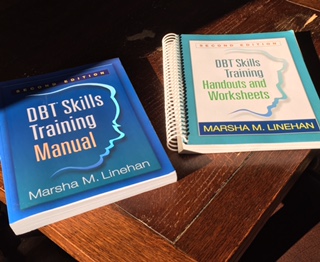
Often people with a Borderline Personality Disorder diagnosis are told they are too high risk for therapy or that they are not ready for therapy. DBT addresses this problem by having a clear series of treatment tasks including focusing on risk behaviours. DBT embraces the risks associated with the diagnosis and targets risky behaviours (such as self-harm) in order to help clients make changes and improve quality of life.
At Brighter Horizons Brighton, we work in a team. This enables us to work with individuals who may not be deemed suitable for other types of therapies. We approach our clients both accepting the difficulties they bring alongside focusing on helping them to make changes in their lives. This approach differs from other types of therapy such as Cognitive Behavioural Therapy (CBT). In traditional CBT, many Borderline clients find the approach too change focused leading to high drop rates or therapy with little benefit. Additionally, clients may be very good at intellectualising problems and challenging thoughts but find their emotions remain difficult to manage after engaging in therapies such as CBT.
DBT does not try to protect clients from pain (as this in an inevitable part of life) but helps individuals to learn skills to manage life's difficulties and the associated emotional pain.
At Brighter Horizons Brighton, we work in a team. This enables us to work with individuals who may not be deemed suitable for other types of therapies. We approach our clients both accepting the difficulties they bring alongside focusing on helping them to make changes in their lives. This approach differs from other types of therapy such as Cognitive Behavioural Therapy (CBT). In traditional CBT, many Borderline clients find the approach too change focused leading to high drop rates or therapy with little benefit. Additionally, clients may be very good at intellectualising problems and challenging thoughts but find their emotions remain difficult to manage after engaging in therapies such as CBT.
DBT does not try to protect clients from pain (as this in an inevitable part of life) but helps individuals to learn skills to manage life's difficulties and the associated emotional pain.
